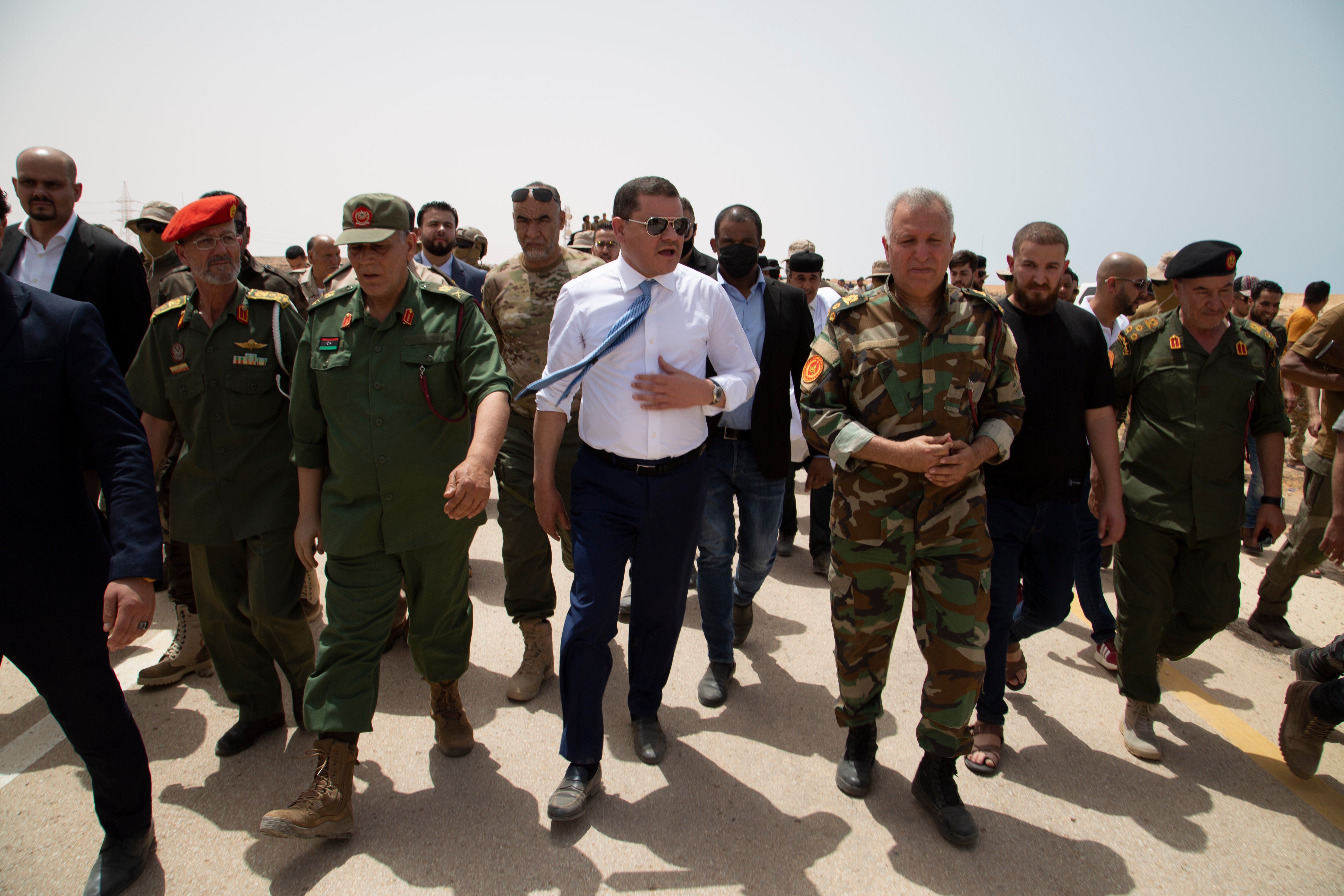Libya's interim government reopens Mediterranean highway
Libya’s interim authorities reopened on Sunday the Mediterranean coastal highway linking the country’s long-divided eastern and western cities, in the latest bid to reunite the territories after years of civil war

Your support helps us to tell the story
From reproductive rights to climate change to Big Tech, The Independent is on the ground when the story is developing. Whether it's investigating the financials of Elon Musk's pro-Trump PAC or producing our latest documentary, 'The A Word', which shines a light on the American women fighting for reproductive rights, we know how important it is to parse out the facts from the messaging.
At such a critical moment in US history, we need reporters on the ground. Your donation allows us to keep sending journalists to speak to both sides of the story.
The Independent is trusted by Americans across the entire political spectrum. And unlike many other quality news outlets, we choose not to lock Americans out of our reporting and analysis with paywalls. We believe quality journalism should be available to everyone, paid for by those who can afford it.
Your support makes all the difference.Libya’s interim authorities reopened on Sunday the Mediterranean coastal highway linking the country’s long-divided eastern and western cities, in the latest bid to reunite the territories after years of civil war.
The announcement comes three days ahead of an international conference on Libya that will be hosted by Germany and the United Nations in Berlin
“I am so delighted to participate in the opening of this essential lifeline linking the east of our country to its west,” Libyan Prime Minister Prime Minister Abdul Hamid Dbeibah told a crowd that gathered as bulldozers were towing away rocks and sand dunes blocking the road.
The coastal highway has been closed since April 2019 after east-based military commander Khalifa Hifter launched a military offensive to wrest the capital, Tripoli, from the U.N.-recognized government. Its reopening was a long-held demand by the U.N. to enable the safe passage of civilians and goods.
The United States embassy in Libya hailed the move, saying in a tweet it was “paving the path for Libyans to have full control over their own affairs.”
Dbeibah was elected as interim prime minister, along with a four-member presidential council, by Libyan delegates at a U.N.-sponsored conference in February. They are meant to shepherd the country to nationwide elections late this year.
In March, the transitional government announced the resumption of flights between eastern Benghazi and western Misrata after seven years of suspension. Both cities have been key strongholds of Libya’s warring factions.
Libya has been mired in chaos since a NATO-backed uprising toppled and later killed longtime dictator Moammar Gadhafi in 2011. Afterwards, the oil-rich country was long divided between a U.N.-supported government in the capital, Tripoli, and rival authorities based in the country’s east, each backed by armed groups and foreign governments.
On Wednesday, an international conference on Libya is set to kick off in Berlin to discuss preparations for the general elections, and withdrawal of foreign forces who were brought in to fight for the opposing sides.
The resumption of traffic on the route stretching along Libya’s Mediterranean coastline comes amid tensions between interim authorities and Hifter’s troops. On Saturday, Hifter’s self-styled Libyan Arab Armed Forces announced the deployment of more troops in the largely lawless south, and the closure of the western border with Algeria, saying it was to combat terrorism. In response, Libya’s presidential council issued a decree sending their own brigades to the south.
Jalel Harchaoui, a Libya expert and senior fellow at the Global Initiative, said that he saw the announcement as posturing ahead of the Berlin negotiations. He said Hifter wants his troops to continue to be seen as “a force to be reckoned with,” but that it’s unlikely that they could enforce such a closure.
“Hifter does not have the ability to send forces to close the Algeria borders. It is just too long, too far away and beyond his capacity,” he said.